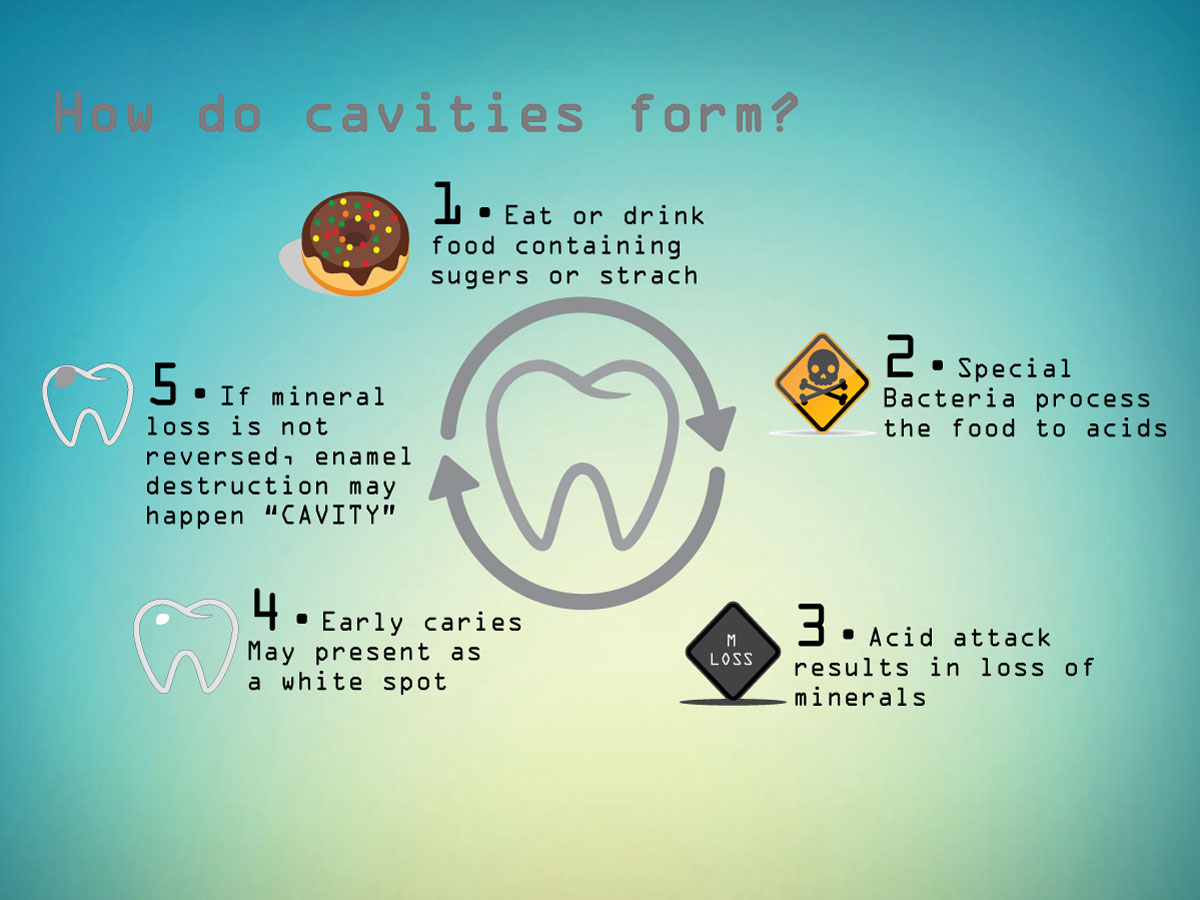What are Cavities?
“Cavity” is another word tooth decay.
Tooth decay is influenced by your lifestyle, meaning you we eat, how you take care of your oral health and teeth, and even the presence of fluoride in the water your drink and the toothpaste you use. Genetics have a role as well in how susceptible your teeth are to decay. Even though cavities are more common in kids, adults are also at risk.
TYPES of CAVITIES
- Coronal Cavities, the most common type. They can occur in both children and adults. They’re typically formed on the chewing surfaces of your teeth, or between your teeth.
- Root Cavities. As we age, our gums recede. This means that parts of the teeth’s roots become exposed. Since there is no enamel covering the roots, these exposed areas can decay easily. Adults are the most at risk for cavities if suffering from dry mouth, a condition caused by a lack of saliva. Dry mouth can be caused by medications, illnesses, radiation therapy, and chemotherapy. Depending on the cause, dry mouth can be temporary or it can be permanent.
- Recurrent cavities, it forms around fillings and crowns. This is because these areas have the tendency to accumulate plaque, leading to- you guessed it- decay.
Cavities need to be taken seriously. If they aren’t treated, a cavity can destroy your tooth, and it can kill the nerves at its center. This may result in the formation of an abscess, which is an infection at the root’s tip. Once an abscess forms, the only way to treat it is with surgery, a root canal, or by extracting the entire tooth.
How Do I Know if I Have a Cavity?
Only your dentist can tell for sure if there’s a cavity. Cavities develop below the tooth’s surface, and so, you can’t see them. When you eat food that contains carbohydrates, which are sugars and starches, these carbohydrates are eaten up by the bacteria in plaque. And this produces acids– that eat your tooth. Tooth’s enamel then may begin to break down along the gumline– while your tooth, remains intact.
Without enamel, there is nothing to protect your teeth.When enough of the enamel is eaten up, the surface collapses, forming a cavity.
We have included an infographic. Click on the link to learn more about dental cavities
Where do we get cavities?
Cavities are most likely to develop in these places:
- In the pits of the chewing surfaces on your back teeth.
- In between teeth.
- Near the gumline.
The best way to find them and treat them before they get serious?
See your dentist regularly for checkups.
How To Prevent Cavities?
- Brush at least 2 times a day.
- Floss daily.
- Have regular dental checkups.
- Eat a well-balanced diet. Limit your starchy and sugary food intake. When you do eat them, try to eat them with a meal, not just by themselves as a snack. This will minimize the number of times that your teeth are exposed to acid.
- Use fluoride toothpaste.
- Drink water that’s fluoridated.
- If your water supply doesn’t contain fluoride, consult your dentist/ doctor about fluoride supplements!
Bronte Rd family dental is a local dental office in Oakville, focusing on prevention of dental diseases and conditions. Call (905) 465-0026 for learn more about our dental programs.


